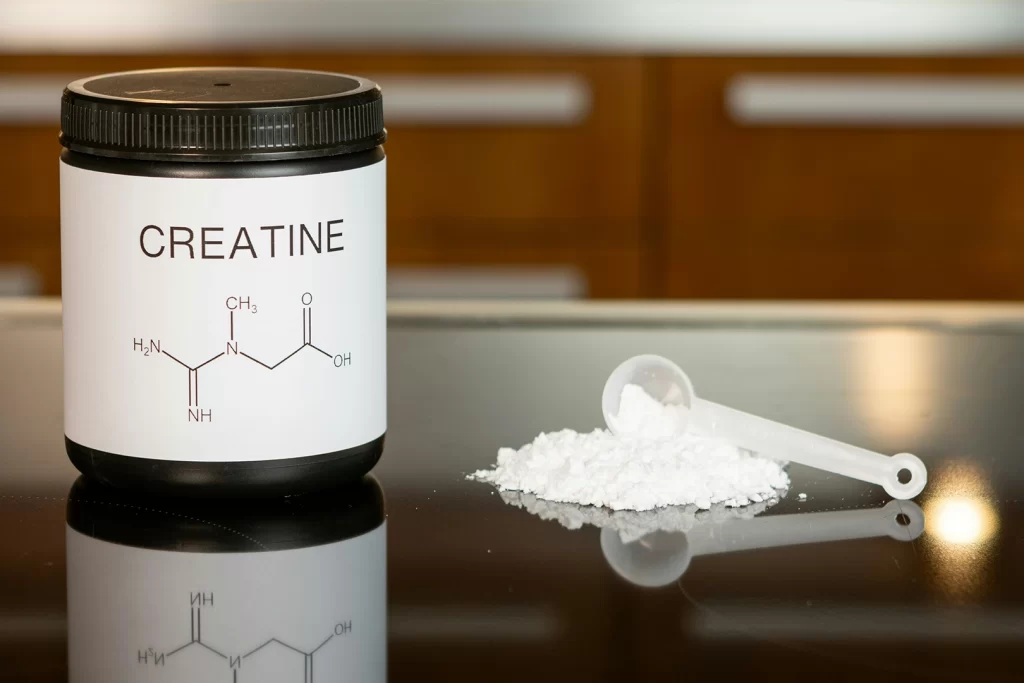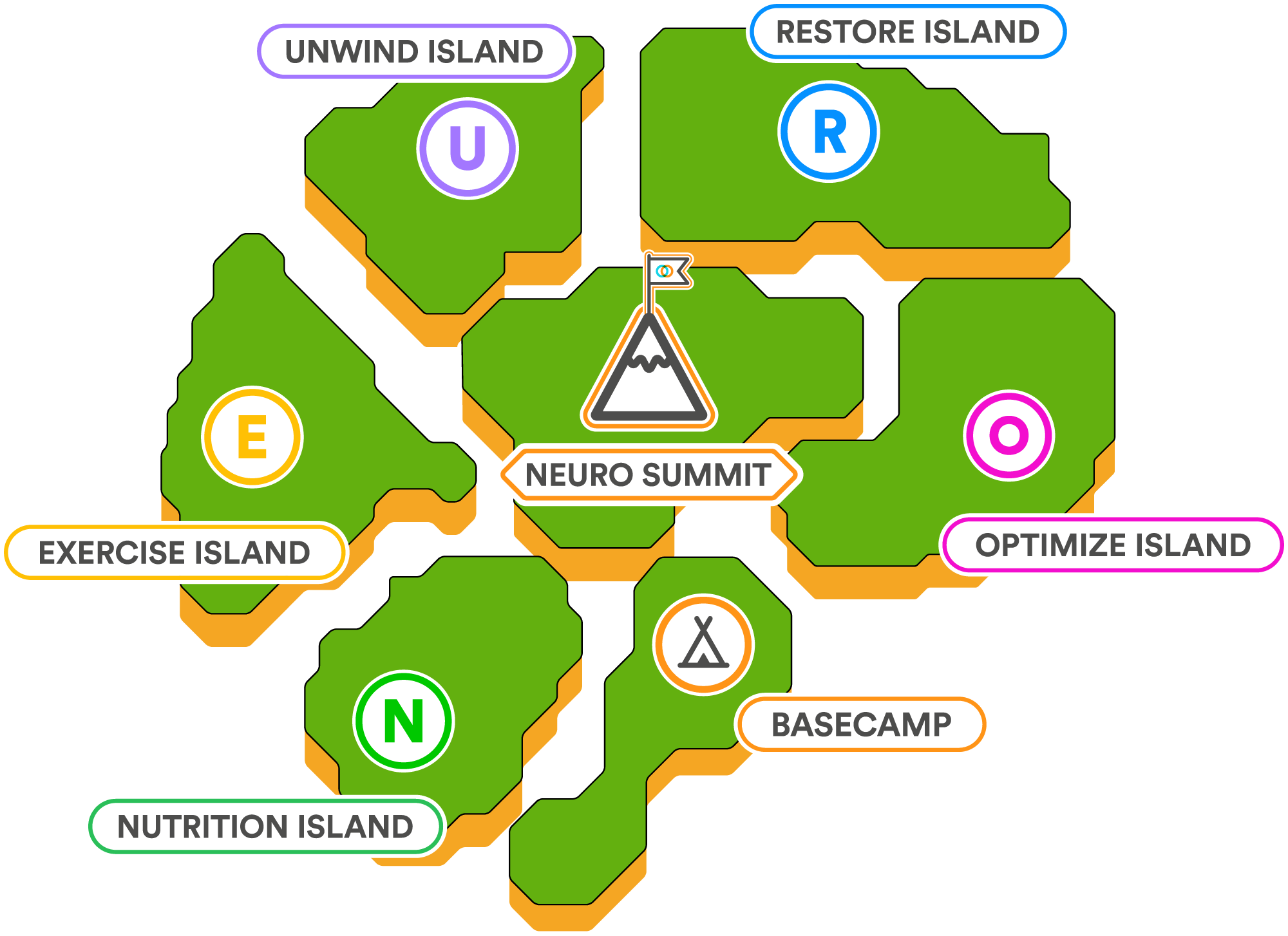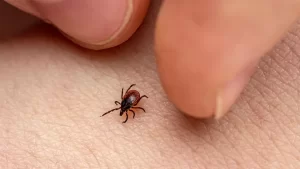A new pilot study on creatine and Alzheimer’s disease has caused a stir in the science, health, and wellness circles of social media, with many viral videos making bold claims like “creatine reverses memory loss” or “creatine reduces the risk of dementia.”
But what does the science actually show?
We reviewed the study, interviewed the researchers, and took a closer look at what creatine actually does in the brain, so we can separate hopeful headlines from evidence-based action.

What is creatine, and what does it do to your brain?
Every cell in your body needs energy to function. That energy comes in the form of a molecule called ATP (adenosine triphosphate). Think of ATP as your cell’s battery.
Creatine helps regenerate ATP through the phosphocreatine system, especially when energy demands spike.
When ATP is used up and becomes ADP (think: a drained battery), phosphocreatine ‘donates’ a phosphate group to convert ADP back into ATP.
While creatine is best-known for supporting muscles, the brain is one of the most energy-hungry organs in the body.
Neurons need continuous ATP to fire, communicate, and repair. Hence the growing interest in the use of creatine as a potential tool for sustaining cognition, memory, and mental processing.
How this relates to Alzheimer’s
Alzheimer’s disease causes brain cells to struggle with processing energy effectively.
The energy mainly comes from glucose, which your brain turns into ATP.
But, in Alzheimer’s, the brain can’t use glucose properly. This state, called brain hypometabolism, is one of the earliest and most consistent features seen in Alzheimer’s imaging studies.
Images from PET scans often reveal decreased glucose use in key regions like the hippocampus and posterior cingulate years before symptoms appear.
This energy deficit impairs synaptic function and plasticity — crucial components of memory formation.
It’s why researchers are exploring metabolic support strategies, like creatine, to improve neuronal resilience.
What the new study tested
The paper at the heart of the social media discourse, titled ‘Creatine monohydrate pilot in Alzheimer’s: Feasibility, brain creatine, and cognition’, was what’s called a pilot feasibility study, meaning it’s NOT designed to test whether creatine “works” to counter or slow the impacts of Alzheimer’s, but whether it’s even possible to run a larger trial safely and consistently.
- The study involved 20 participants with Alzheimer’s
- They took 20 grams per day of creatine monohydrate for 8 weeks
- Researchers tracked compliance and blood and brain creatine levels, and tested cognition (measured with MRS — magnetic resonance spectroscopy)
- MMSE scores (the Mini-Mental State Examination — a brief standardized test used to screen for cognitive impairment) did not improve, which is notable, but not surprising given its limitations in detecting short-term changes
This dose is much higher than typical fitness use (3–5 g per day), but that’s intentional — pilot studies often test upper limits to inform future trial designs.

Key findings from the study
- 19 out of 20 participants tolerated the high dose well
- Brain total creatine increased by 11% (measured with MRI spectroscopy)
- Some cognitive scores (like working memory and reading) showed small improvements
These are promising signs for a future, more rigorous study!
But the social media buzz has caused some confusion, and blurred the outcomes of the study.
What the study doesn’t prove
This study wasn’t designed to test whether creatine treats Alzheimer’s, slows disease progression, or meaningfully improves quality of life.
It had no control group, no placebo, and no blinding — all vital features in determining whether an intervention truly works.
As Matthew Taylor, who led the study, told us:
“ We want to say [that] we found these exciting findings, but we also want to be very cautious about the interpretation of them.
“So at this point, I don’t think I can recommend to a patient that this is going to ultimately have some sort of cognitive influence. I wouldn’t want to give those types of indications to anybody.”
Should you take creatine for brain health?
For most healthy adults, creatine is considered safe in moderate doses. It’s a popular supplement for enhancing high-intensity workouts.
But it’s not currently recommended as a treatment for Alzheimer’s or memory loss.
If you’re considering creatine for cognitive health, speak with your healthcare provider — especially if you have existing medical conditions or are taking other supplements.
And if you’ve found your way to this article because you were thinking about using creatine to boost your brain health and protect yourself against neurodegenerative disease, fantastic! That kind of curiosity is powerful.
But we must all be careful to not extrapolate beyond the data, and to always look at the actual research behind the social media headlines.
What is proven to protect your brain?
While studies on creatine continue, we already have powerful, evidence-backed tools to protect brain health and lower Alzheimer’s risk:
- Regular physical activity
- Plant-predominant, fiber-rich nutrition
- Quality sleep
- Mental stimulation
- Stress management
- Social connection
These are all core elements of our ‘NEURO’ framework: Nutrition, Exercise, Unwind (balancing stress), Restore (sleep), and Optimize (cognitively-stimulating activities).
Creatine may hold promise. But this new study is a pilot, not proof. We’re hopeful. We’re paying attention. And we’ll keep watching the science, with both curiosity and caution!
Get more brain science direct to your inbox
Sign up for the Brain Docs newsletter for weekly recipes, brain teasers, neuroscience facts, podcast updates, and more.

About The Author
Ayesha Sherzai, MD, PhD
Dr. Ayesha Sherzai is an assistant professor of neurology and a scientist, specialized in vascular neurology and preventive medicine. Her research and practice is focused on the prevention of neurological diseases, specifically stroke and dementia. She holds a masters degree in clinical research, and is a trained plant-based culinary artist, focused on teaching her patients and community how to prepare delicious, healthy recipes for brain and general health.



